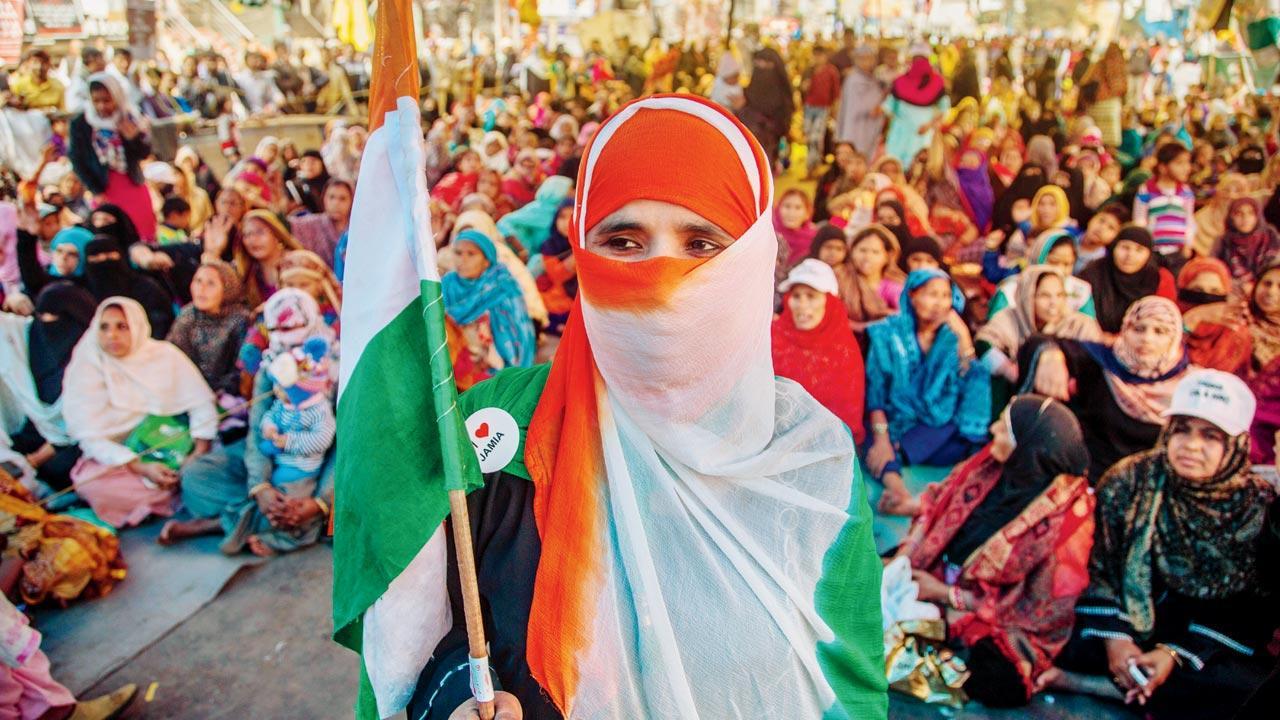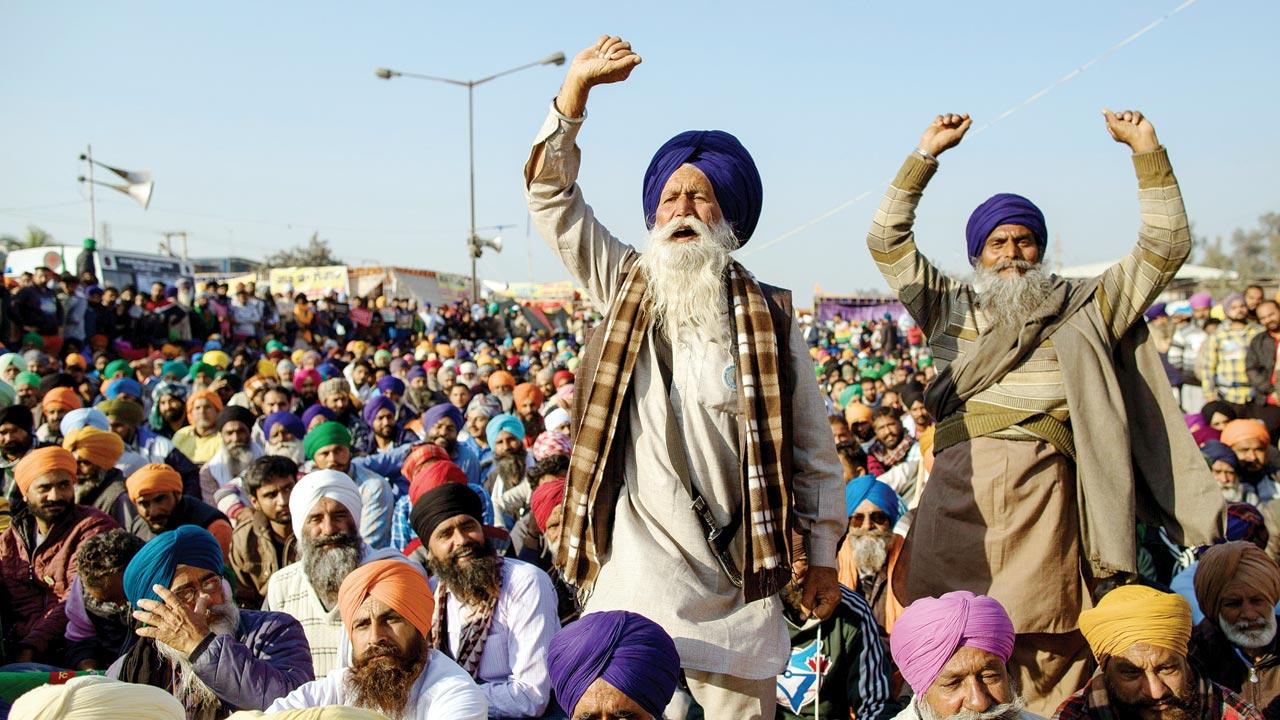An anonymous Indian poet brings fresher perspectives to old news, but more as the reader’s confidante rather than as a commentator

Recent and ongoing events like Shaheen Bagh
His poems speak of rage, but also of hope; of despair, but also of love. The verses, some short, some longer—80 in all—address old questions, while offering new perspectives. The subjects are all too familiar: Shaheen Bagh, the farmers’ protest, and the arrests of individuals like Umar Khalid, Father Stan Swamy and Varavara Rao. But with each poem, Hamraaz (Urdu for “confidante”), as the poet prefers to be called, makes the reader wonder, “Why didn’t I think of it this way?”
ADVERTISEMENT
“It was an impulsive decision, [taken] at a time when I wasn’t sure anyone would actually read anything I wrote,” the poet says about his pen name over an email interaction, “A close friend suggested it. I liked that the name was clearly a pen name, but it also signalled a kind of intimacy with the reader. It can also be seen as tongue in cheek. My alter egos don’t like to take themselves too seriously.” It would’ve been braver to not be anonymous, Hamraaz concedes, “But then I couldn’t have written these poems.”
His verses on Shaheen Bagh, the site of a major anti-CAA protest before the COVID-19 pandemic, begin so: “Yesterday, you asked me to write a poem/ or a song about the women of Shaheen Bagh/ and I laughed and said/ that’s not possible—the women of Shaheen Bagh are a poem and a song…”. Later in the poem, having given it more thought, Hamraaz remarks that his analogies were wrong; these were women sitting on the cold, hard concrete day and night, braving the threat of lathis, tear gas and jail time. “They are sitting because they won’t stand/to see students beaten by police/ to see unjust laws divide the land…” he writes.
 The farmers’ protests find a new voice in anonymous poet Hamraaz’s collection of poems. Pic/Getty Images
The farmers’ protests find a new voice in anonymous poet Hamraaz’s collection of poems. Pic/Getty Images
The first draft of almost all of these were written between December, 2019 and May, 2022. I wrote regularly and intensively,” says Hamraaz. “It took another year to put the manuscript together. Since I couldn’t read poems publicly, I didn’t meet other writers and editors in the usual ways. But because I was posting online regularly and was featured in The Penguin Book of Indian Poets, many reached out to offer their support,” he says.
He adds that Westland-Context had no issue with him being anonymous. “But we had to work out how I’d sign a contract without signing it, as it were. That took creativity and time, but I was again helped by people I met online, including an activist lawyer. They set up a not-for-profit organisation that could sign contracts, and I gave the rights to the manuscript to this organisation.”
His decision to remain anonymous was long pondered and well thought out, he says. “By now, we all understand dissent is unsafe. I knew I had to be anonymous when I found I was censoring myself. Fear is not good for art,” he says.
The unnamed poet admits that he, too, was personally involved in many of the protests that the country has seen in the last few years. With each subject, he balances emotions—sometimes beginning on a note of despair and ending on a hopeful one, or vice versa.
“I once heard or read Jeet Thayil say that good poems with strong emotions are usually written from a place of calm, of looking back,” says Hamraaz, “In a way, poems are a translation of the feelings they intend to evoke. In the end, though, it is readers who bring all writing to life, often in surprising, and sometimes powerful, ways. I suppose what any reader feels about a poem I’ve written is more important than what I may have felt when I wrote it.”
For Fr Swamy, who was denied a sipper to drink from in jail, he writes, “Tonight in Taloja Jail/Father Stan Swamy shakes/but also rejoices…” He goes on to write that Fr Swamy rejoices in the certainty that soon, all the people that he fights for will raise their voices in unity. “…and our weeping/will turn to laughter.”
“It’s so important for us to remember people who have spoken out for justice, love and solidarity–and who have paid a heavy price for doing so. I do not personally know any of the political prisoners mentioned in the book, but I am grateful to them in a way that feels very personal. At the same time, I hope their names also work on a symbolic level; in my imagination, at least, they represent all of us at our best and bravest,” he says.
What next, we wonder, can we expect from this unseen confidante? “Hopefully,” he replies, “this darkness will end soon, but if it doesn’t, I expect I’ll keep popping up with new poems every few weeks.”
Hum dekhenge, Hamraaz.
 Subscribe today by clicking the link and stay updated with the latest news!" Click here!
Subscribe today by clicking the link and stay updated with the latest news!" Click here!







